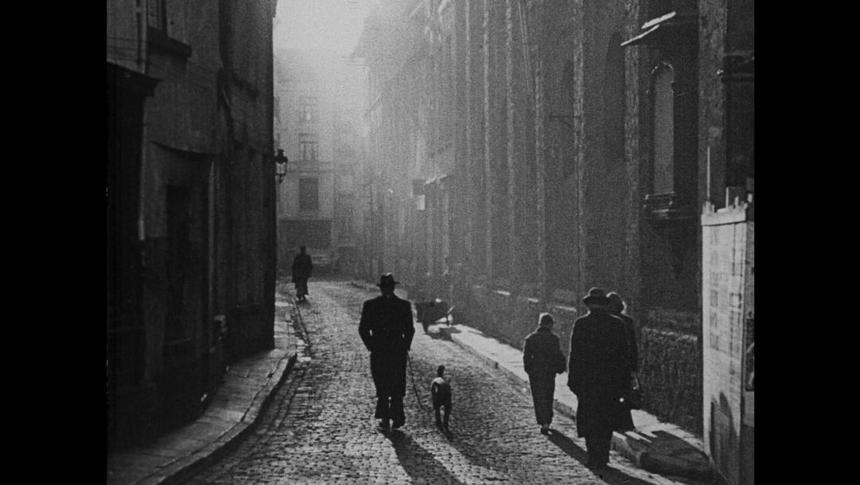Montreal Nouveau 2020: NIGHT HAS COME, Collective Memory and the End of Days

Imagine waking up in an sanitorium, and finding your memory slowly being eaten away by a virus in your brain. Scientists are trying to harvest your memories, which are replaced, inside you, by darkness. While this film started the festival rounds last year, it's not hard to be a little disturbed by what seems to be a prophetic vision of our future. Written by Peter Velhelst and directed by Peter van Goethem, Night Has Come is a one-hour black and white vision of a dystopian future, pieces together with archival footage from Belgium and a monologue/poem that is both elegaic and forboding.
We are given close-ups of an old man, the man who is telling us this story: the story of him, and the story of a world reaching the end. This is intercut with images that seem unconnected, until we think of them as the oscillation between individual and collective memory. There are children running into the coean, a sunny afternoon with their families; then there is a bombed city, and a field overrun by fog and solitude. In its immediate form, this is a story of Belgium and its evolution in the 20th and 21st centuries; but it's also the story of an individual, the story of Europe, and the story of the western world, both caught in its own joy and headed for destruction by a slow burn that spreads across the planet. There is a suggestion in the monologue that this might be a man-made virus created by governments to harvest memories - less a nod to conspiracy theorists, more an indication of how much power we relinquish to authorities when we need collective memory to understand and govern ourselves.
Working in a similar vein to Sans Soleil, van Goethem seeks to examine not only what we remember,m but why we remember some things and not others, what does the collective memory of a nation or a culture mean, if it privileges some above others, and what are when we we lose that memory? The dialogue is not a recitation of what's on the screen, but a meditation on those memories, what their meaning is to the character. As such, what is said and what is seen is not always (in fact rarely) in alignment. The lack of cohesion is deliberate: we are meant to be that person whose memory is jumbled and disappearing, whose life has become a series of images as if filmed by a stranger, the connection to the world slipping as each film ends and takes itself into the darkness.
What might seem, at least in the first image, to be a contemplative meditation on memory, becomes a slow, disturbing examination of its wider meaning, and what it is to be human, here at the end of things, when our memories are not enough to stop us from repeating the mistakes of the past. Like the old man, with lines in his face a road map that is too complicated to navigate, Night Has Come does not offer easy answers, or complicated ones, or really any answers. It is a poetic investigation about why we remember, and more importantly, why we forget.







